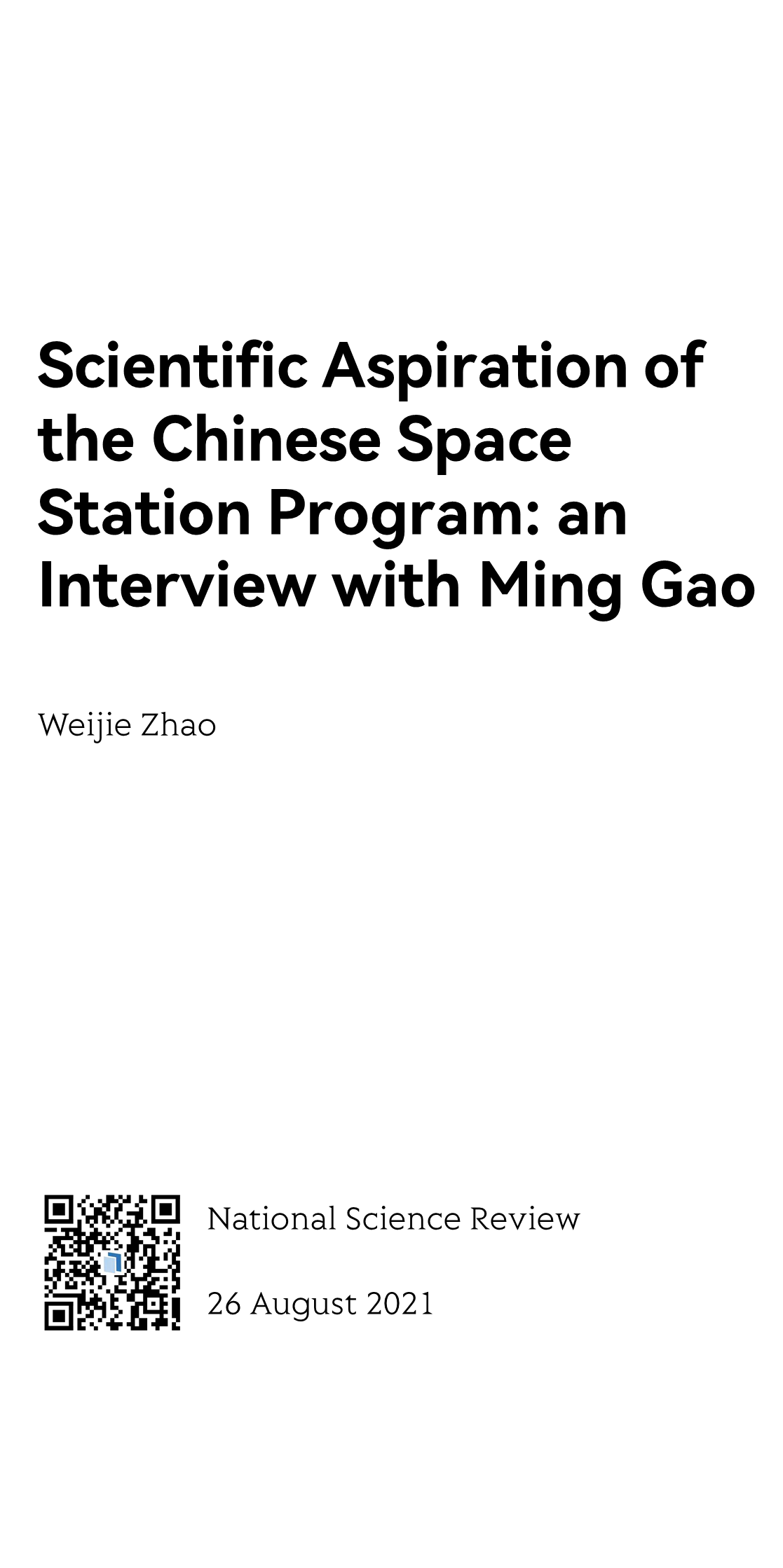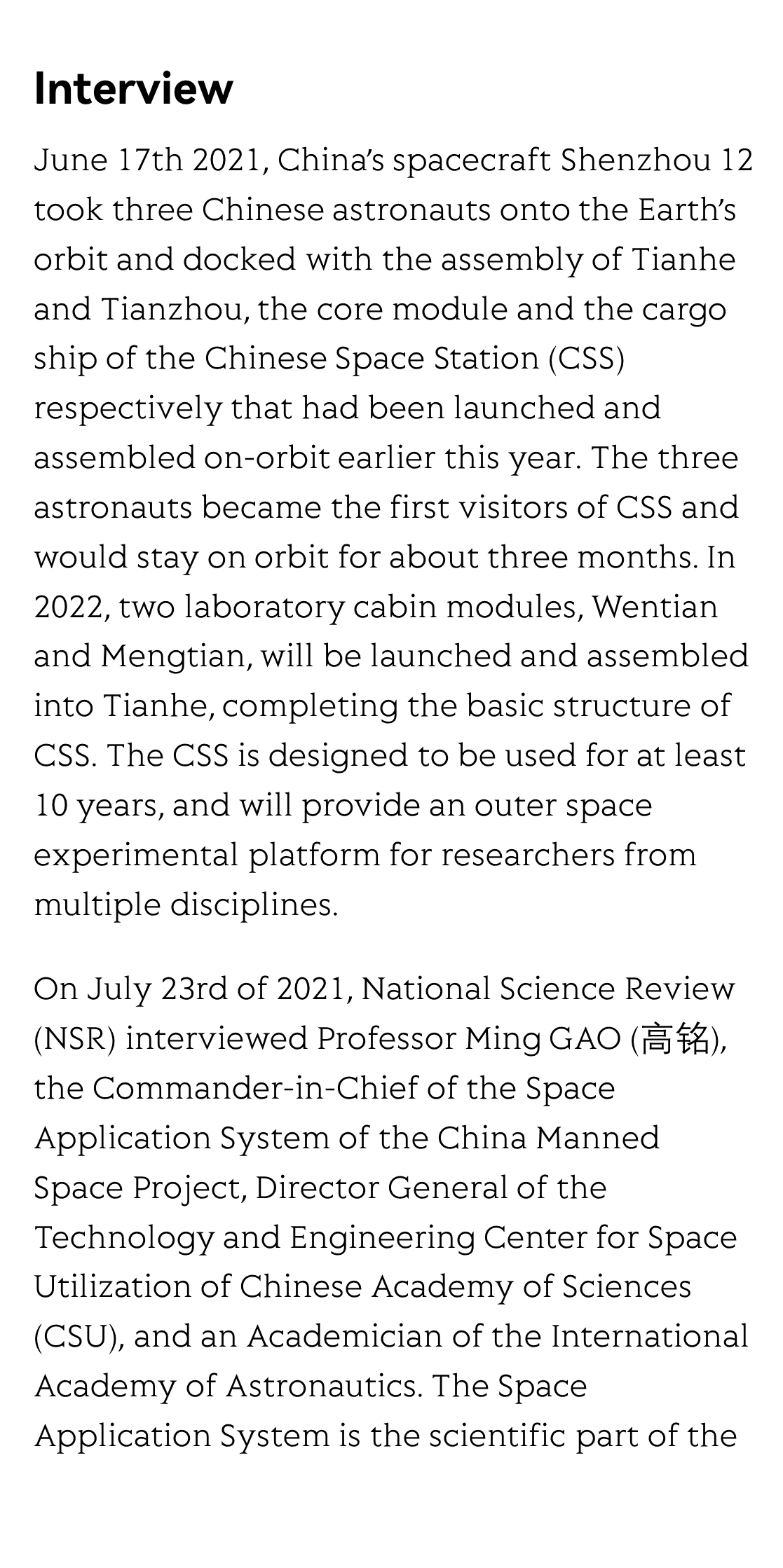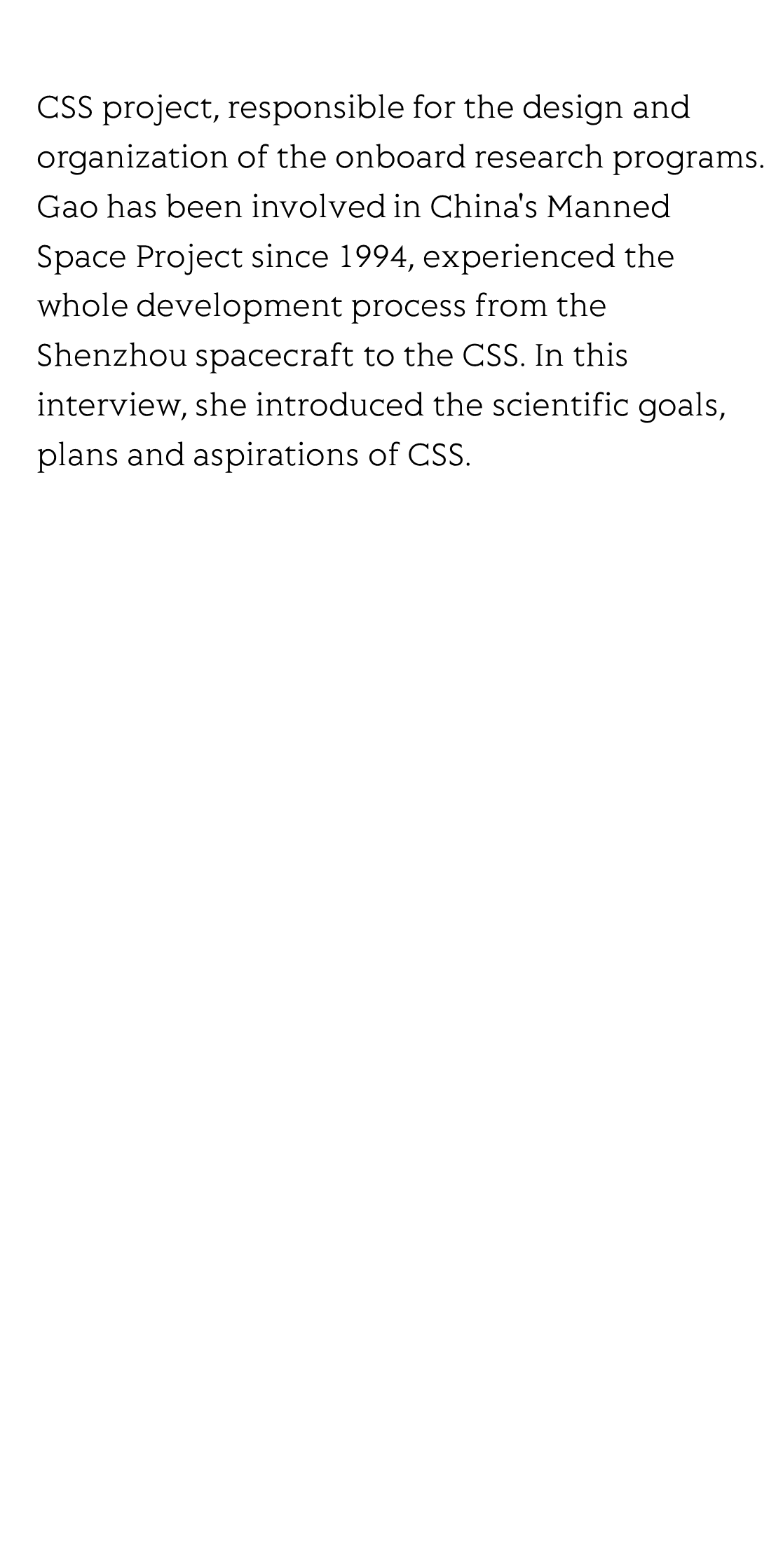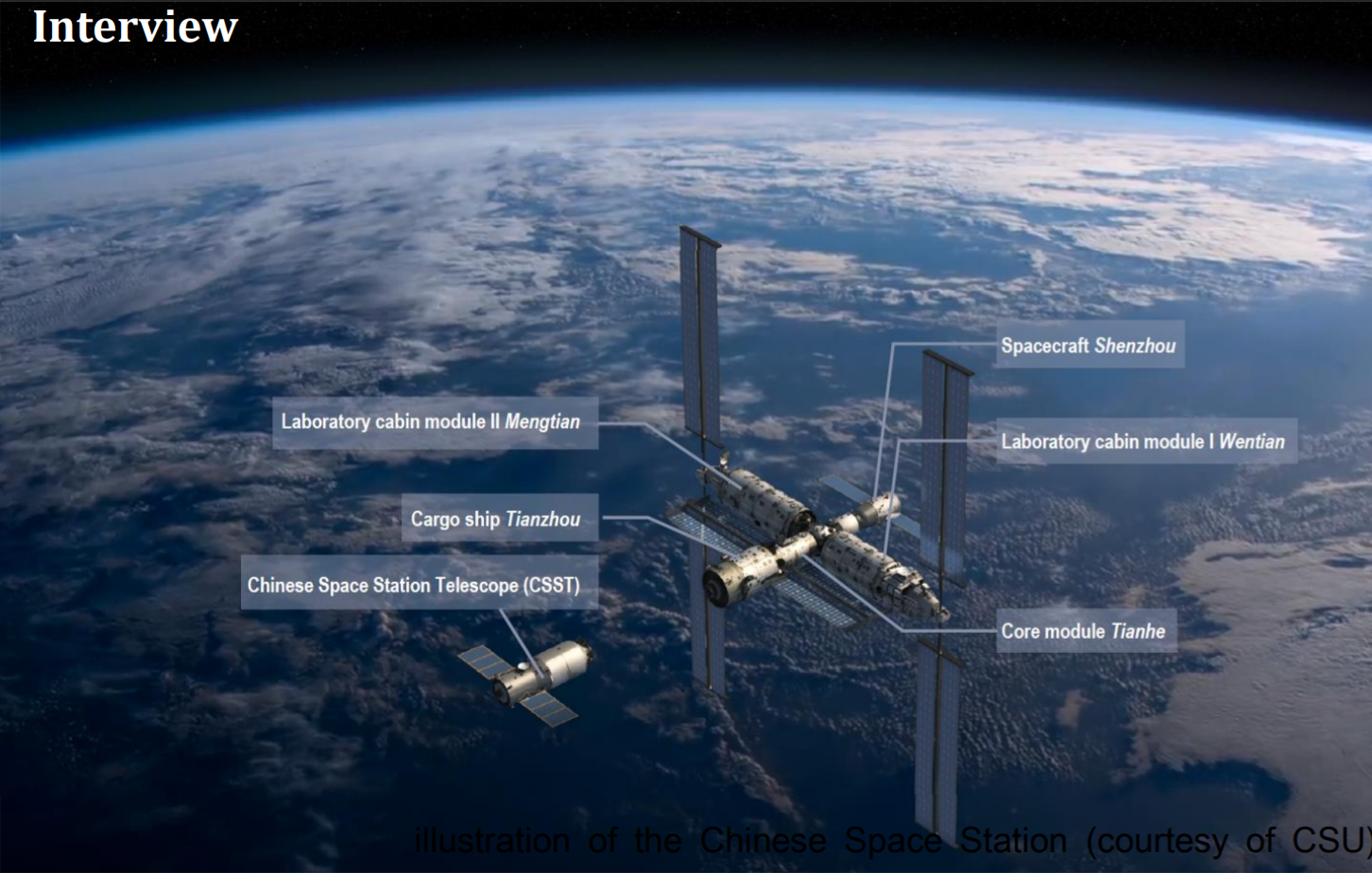(Peer-Reviewed) Scientific Aspiration of the Chinese Space Station Program: an Interview with Ming Gao
Weijie Zhao 赵维杰
News editor at National Science Review (NSR)
《国家科学评论》新闻编辑
National Science Review, 2021-08-26
Interview
June 17th 2021, China’s spacecraft Shenzhou 12 took three Chinese astronauts onto the Earth’s orbit and docked with the assembly of Tianhe and Tianzhou, the core module and the cargo ship of the Chinese Space Station (CSS) respectively that had been launched and assembled on-orbit earlier this year. The three astronauts became the first visitors of CSS and would stay on orbit for about three months. In 2022, two laboratory cabin modules, Wentian and Mengtian, will be launched and assembled into Tianhe, completing the basic structure of CSS. The CSS is designed to be used for at least 10 years, and will provide an outer space experimental platform for researchers from multiple disciplines.
On July 23rd of 2021, National Science Review (NSR) interviewed Professor Ming GAO (高铭), the Commander-in-Chief of the Space Application System of the China Manned Space Project, Director General of the Technology and Engineering Center for Space Utilization of Chinese Academy of Sciences (CSU), and an Academician of the International Academy of Astronautics. The Space Application System is the scientific part of the CSS project, responsible for the design and organization of the onboard research programs. Gao has been involved in China's Manned Space Project since 1994, experienced the whole development process from the Shenzhou spacecraft to the CSS. In this interview, she introduced the scientific goals, plans and aspirations of CSS.
A review on optical torques: from engineered light fields to objects
Tao He, Jingyao Zhang, Din Ping Tsai, Junxiao Zhou, Haiyang Huang, Weicheng Yi, Zeyong Wei Yan Zu, Qinghua Song, Zhanshan Wang, Cheng-Wei Qiu, Yuzhi Shi, Xinbin Cheng
Opto-Electronic Science
2025-11-25
Flicker minimization in power-saving displays enabled by measurement of difference in flexoelectric coefficients and displacement-current in positive dielectric anisotropy liquid crystals
Junho Jung, HaYoung Jung, GyuRi Choi, HanByeol Park, Sun-Mi Park, Ki-Sun Kwon, Heui-Seok Jin, Dong-Jin Lee, Hoon Jeong, JeongKi Park, Byeong Koo Kim, Seung Hee Lee, MinSu Kim
Opto-Electronic Advances
2025-09-25







